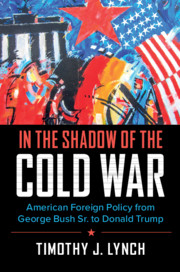
- Cited by 2
-
Cited byCrossref Citations
This Book has been cited by the following publications. This list is generated based on data provided by Crossref.
Martínez, Francisco Javier Martínez, F.J. and Miralles-Buil, C. 2022. Opening address. SHS Web of Conferences, Vol. 136, Issue. , p. 00002.
Rojas, Diana Marcela 2023. La presidencia de Trump y la ruptura del orden internacional liberal. Análisis Político, Vol. 35, Issue. 105, p. 293.
- Publisher:
- Cambridge University Press
- Online publication date:
- November 2019
- Print publication year:
- 2019
- Online ISBN:
- 9781139027120




